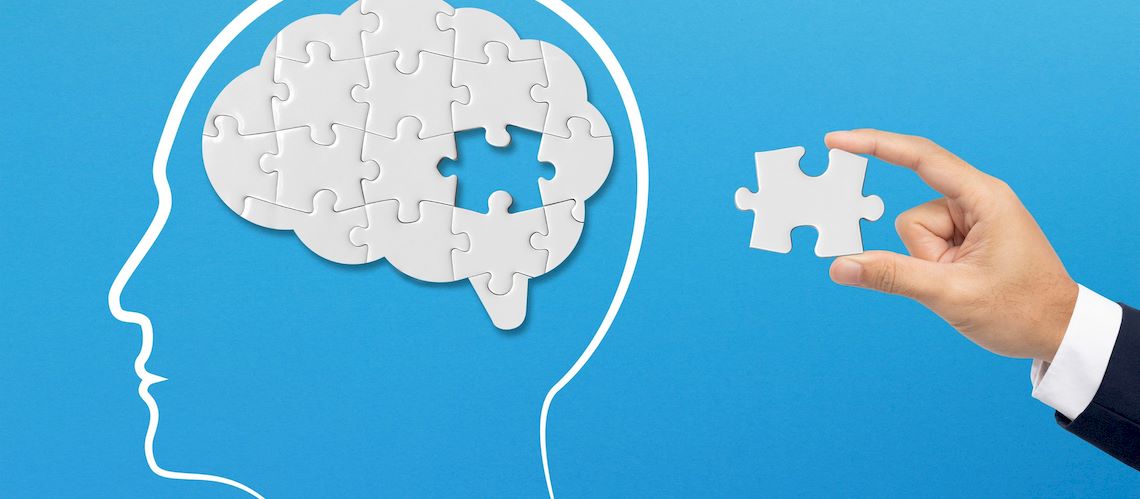Memory is one of the most powerful tools for unlocking cognitive potential, and it plays a vital role in achieving balanced growth within the CORE Compass Framework. By enhancing memory, individuals can stimulate intellectual curiosity, support emotional resilience, boost physical vitality, and foster spiritual fulfillment. This article explores how memory improvement techniques align with the four dimensions of the CORE Compass Framework, offering practical strategies for holistic development.
Memory Techniques in Action
Imagine a busy professional, Alex, juggling multiple responsibilities: leading meetings, preparing presentations, and managing a growing team. Despite their expertise, Alex struggles to recall key details during high-pressure situations, often feeling overwhelmed and unprepared. Frustrated by frequent lapses in memory, Alex decides to adopt a new approach: memory improvement techniques.
First, Alex begins using the memory palace technique to organize and retain complex information for presentations. They visualize walking through their office, mentally placing critical points of the presentation in specific locations—one idea in the doorway, another on their desk, and so on. When it’s time to present, Alex simply “walks” through the imagined office, recalling each point with ease.
Next, Alex incorporates spaced repetition into their preparation. Instead of cramming the night before, they review key material over several days, using an app that schedules reminders to revisit topics. This systematic review reinforces Alex’s memory, ensuring long-term retention.
Finally, Alex adopts mindfulness practices, such as five minutes of focused breathing before each meeting, to reduce stress and improve mental clarity. With regular practice, Alex notices a dramatic difference: they feel more confident, their presentations flow naturally, and colleagues comment on their newfound composure.
What started as a small adjustment quickly transforms Alex’s professional performance. By integrating memory improvement techniques into daily routines, Alex not only enhances recall but also builds confidence, emotional resilience, and productivity.
Memory Improvement in the CORE Compass Framework
1. Curiosity and Cognitive Growth
Curiosity drives exploration, creativity, and lifelong learning. Memory improvement techniques enhance this dimension by strengthening the brain’s capacity to absorb and recall information, fueling intellectual growth.
- Activities:
- Mnemonic devices like acronyms (e.g., HOMES for the Great Lakes) and rhymes.
- Visualization techniques to link abstract concepts with vivid mental images.
- Spaced repetition for strategic review and retention (Cepeda et al., 2006).
- Purpose:
- Stimulate intellectual curiosity.
- Foster a deeper engagement with learning.
- Example: A student preparing for exams uses visualization to connect complex historical events with memorable imagery, enabling better recall during tests. Mnemonic devices help them quickly learn challenging terminology, such as medical or scientific terms, significantly boosting their confidence and academic performance (Pressley et al., 1987).
2. Operational and Physical Vitality
Cognitive vitality is directly linked to physical health and activity. Combining brain-boosting exercises with physical activity optimizes memory and reduces the risk of cognitive decline.
- Activities:
- Aerobic exercises like running or swimming to increase blood flow to the brain.
- Cognitive exercises such as puzzles, memory games, and logic challenges.
- Purpose:
- Maintain and enhance cognitive health.
- Prevent age-related memory decline and improve focus.
- Example: Incorporating 30 minutes of aerobic exercise followed by 15 minutes of memory games daily has been shown to strengthen neural pathways and improve memory retention. This combination creates a synergistic effect, enhancing both physical and cognitive vitality (Chandler and Sweller, 1991).
3. Resilience and Emotional Equilibrium
Memory and emotions are deeply interconnected. Stress, anxiety, and negative emotions impair memory retention, while emotional resilience enhances cognitive performance.
- Activities:
- Mindfulness practices like meditation and focused breathing.
- Journaling to process thoughts and reduce mental clutter.
- Purpose:
- Reduce cognitive stress and enhance emotional balance.
- Improve memory retention by promoting a calm, focused state.
- Example: A professional experiencing work-related stress practices mindfulness meditation for 10 minutes daily, which reduces cortisol levels and enhances memory function. Over time, they find themselves recalling critical details more easily and approaching tasks with greater emotional resilience (Roediger and Karpicke, 2006).
4. Essence and Spiritual Fulfillment
Memory supports spiritual growth by deepening self-reflection and enhancing the capacity to process meaningful experiences. Reflective and meditative practices leverage memory to foster inner peace and a sense of fulfillment.
- Activities:
- Reflective journaling to connect past experiences with present goals.
- Meditation focused on gratitude or spiritual insights.
- Purpose:
- Strengthen introspection and spiritual awareness.
- Enhance clarity and focus for personal growth.
- Example: Reflecting on meaningful life events through journaling helps individuals draw lessons and insights, improving their ability to process experiences deeply. Similarly, gratitude-focused meditation improves memory by associating positive emotions with significant moments (Cepeda et al., 2006).
Benefits of Memory Improvement in the CORE Compass Framework
- Enhanced Learning and Retention
Spaced repetition and mnemonics facilitate faster learning and longer-lasting retention (Higbee, 2001). - Improved Cognitive Function
Regular memory exercises sharpen critical thinking and problem-solving skills, supporting intellectual and professional development (Horsley, 2013). - Increased Productivity
Professionals using memory strategies like the memory palace report better task management and reduced stress (Foer, 2012). - Emotional Resilience
Mindfulness practices improve both memory retention and emotional stability, contributing to a balanced life (McGaugh, 2000). - Holistic Growth
Memory improvement techniques support all dimensions of the CORE Compass Framework, fostering intellectual, physical, emotional, and spiritual development.
Practical Steps to Integrate Memory Improvement
- Identify Priorities
Determine which CORE Compass dimensions need the most attention. For example, focus on cognitive growth for academic goals or emotional resilience to manage stress effectively. - Design Tailored Practices
Combine activities that address multiple dimensions. For instance, pair reflective journaling (spiritual fulfillment) with mnemonic exercises (cognitive growth) to create a balanced routine. - Commit to Consistency
Dedicate specific times each day to memory-enhancing activities, such as morning mindfulness or evening spaced repetition sessions. - Evaluate Progress
Track your improvements using apps or journals and refine your approach based on results.
Scientific Evidence Supporting Memory Techniques
- Spaced Repetition: Reviewing material at increasing intervals enhances long-term retention and recall (Cepeda et al., 2006).
- Retrieval Practice: Actively testing knowledge strengthens memory pathways and reinforces learning (Roediger and Karpicke, 2006).
- Cognitive Load Theory: Structured learning activities reduce mental strain, making information easier to retain (Chandler and Sweller, 1991).
- Mindfulness and Emotional Regulation: Reducing stress through meditation improves memory consolidation and overall emotional balance (McGaugh, 2000).
Real-Life Applications
- Students: Mnemonic devices and spaced repetition empower students to master challenging subjects, enhancing academic success (Pressley et al., 1987).
- Professionals: Memory techniques like the memory palace allow professionals to deliver presentations confidently and manage tasks efficiently (Foer, 2012).
- Personal Growth: Reflective journaling deepens self-awareness and supports long-term emotional resilience, enhancing both memory and fulfillment.
Conclusion
Integrating memory improvement techniques into the CORE Compass Framework offers a transformative approach to personal development. These strategies not only enhance learning and productivity but also contribute to emotional resilience and spiritual fulfillment. Whether you aim to sharpen your intellect, manage stress, or cultivate inner peace, memory improvement can unlock new possibilities for growth in every dimension of life. Start your journey today and discover the power of a balanced and enriched mind.
References:
Cepeda, N. J. et al. (2006) Distributed practice in verbal recall tasks: A review and quantitative synthesis. Psychological Bulletin, 132(3), pp. 354–380.
Chandler, P. & Sweller, J. (1991) Cognitive Load Theory and the Format of Instruction. Cognition and Instruction, 8(4), pp. 293–332.
Foer, J. (2012) Moonwalking with Einstein: The Art and Science of Remembering Everything. Penguin Publishing Group.
Higbee, K. L. (2001) Your memory: how it works and how to improve it. New York: Marlowe & Co.
Horsley, K. (2013) Unlimited Memory: How to Use Advanced Learning Strategies to Learn Faster, Remember More and Be More Productive.
Kwik, J. (2020) Limitless: Upgrade Your Brain, Learn Anything Faster, and Unlock Your Exceptional Life. Hay House.
Lorayne, H. & Lucas, J. (2012) The Memory Book: The Classic Guide to Improving Your Memory at Work, at School, and at Play. Random House Publishing Group.
McGaugh, J. L. (2000) Memory—a century of consolidation. Science, 287(5451), pp. 248–251.
O’Brien, D. (2020) Quantum Memory Power: Learn to Improve Your Memory with the World Memory Champion!. Gildan Media LLC aka G&D Media.
Pressley, M. et al. (1987) The Development of Good Strategy Use: Imagery and Related Mnemonic Strategies. In: Mark A. McDaniel & Michael Pressley (eds.) Imagery and Related Mnemonic Processes: Theories, Individual Differences, and Applications. New York, NY: Springer, pp. 274–297.
Roediger, H. L. & Karpicke, J. D. (2006) The Power of Testing Memory: Basic Research and Implications for Educational Practice. Perspectives on Psychological Science, 1(3), pp. 181–210.




